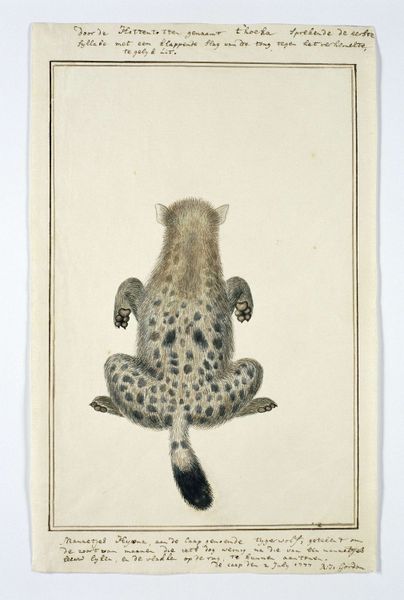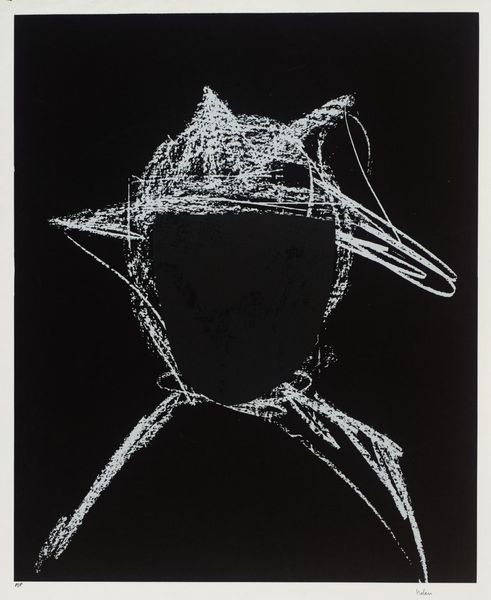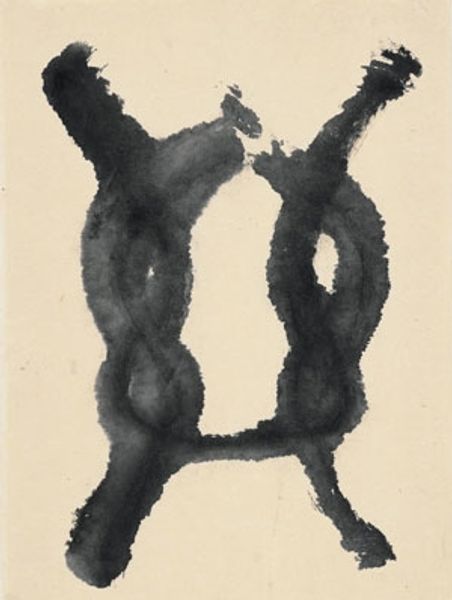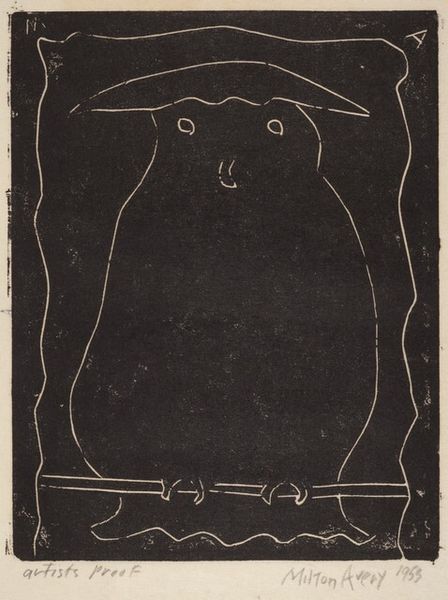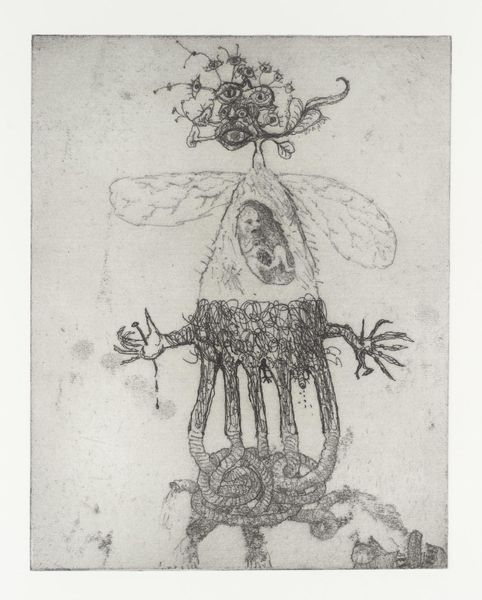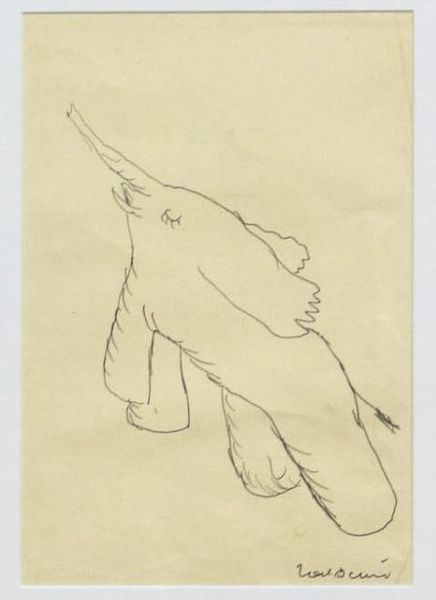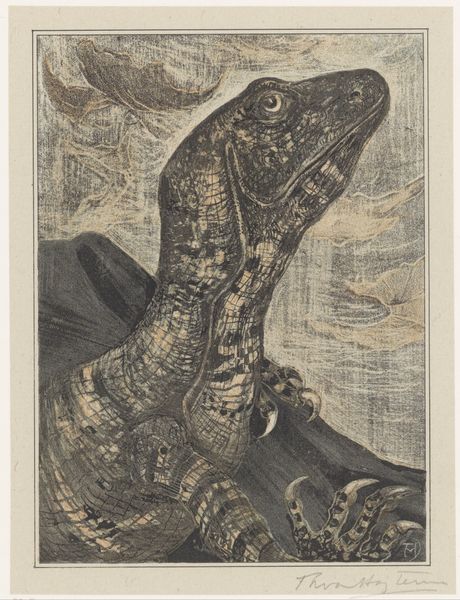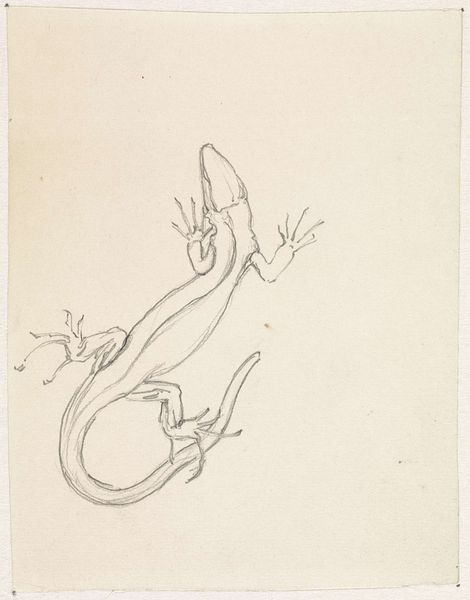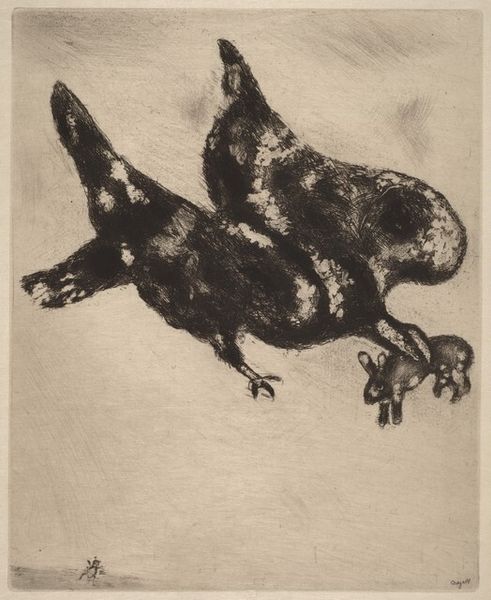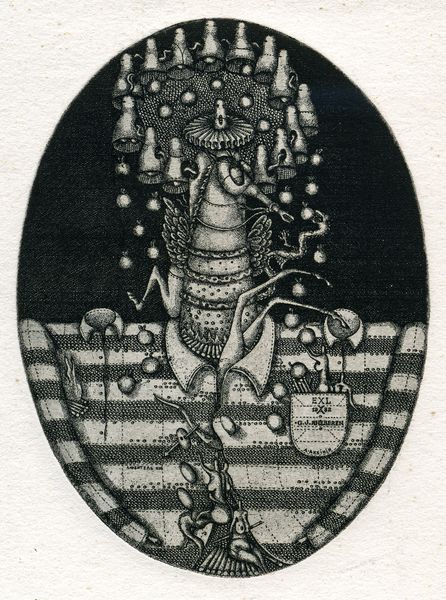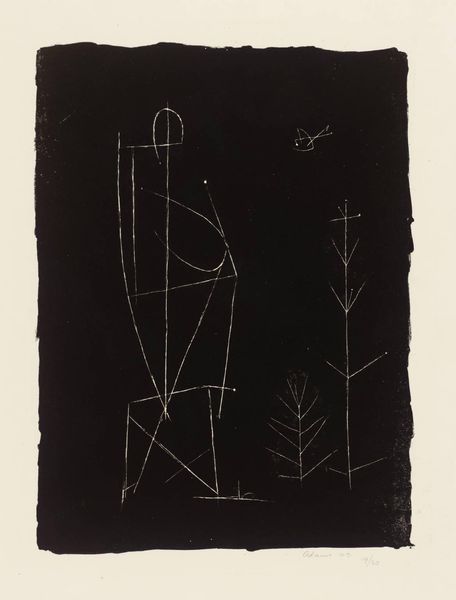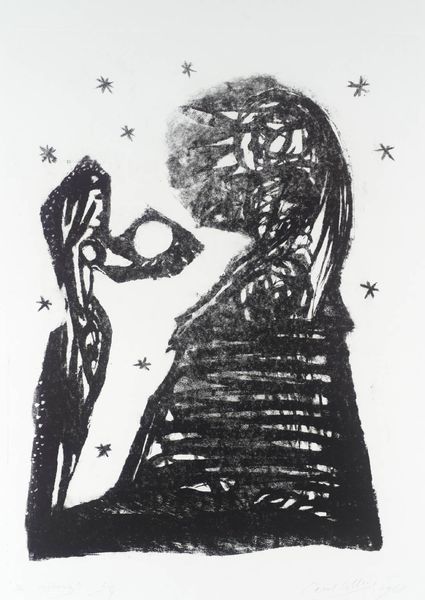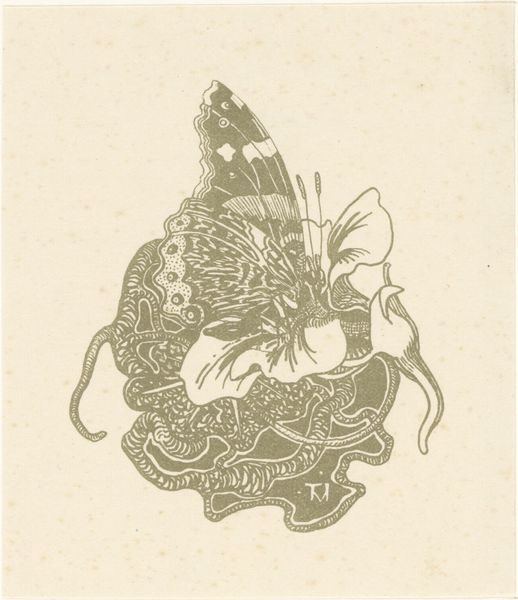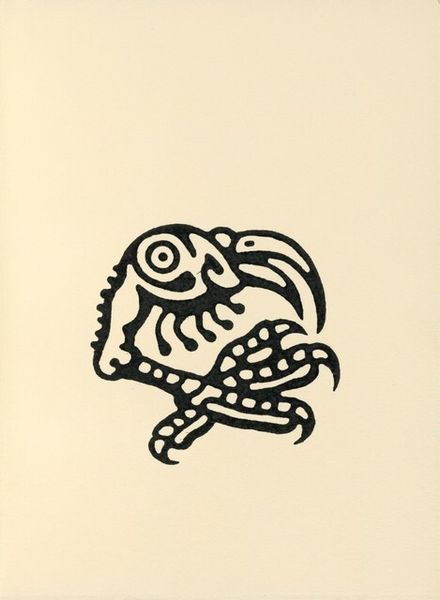
Dimensions: image: 175 x 126 mm
Copyright: © David Austen, courtesy Anthony Reynolds London/ courtesy Ingleby Gallery, Edinburgh | CC-BY-NC-ND 4.0 DEED, Photo: Tate
Curator: This is David Austen's "Crocodile," held within the Tate Collections. The artist, born in 1960, gives us this image in monochromatic print. What's your take on it? Editor: It's… whimsical? Like a little crocodile doing jazz hands under some atomic-age stars. It's got this quirky charm, a naive quality that makes you smile. Curator: Austen's work often plays with dichotomies—the monstrous and the mundane. Crocodiles, traditionally symbols of danger, are here almost comical, perhaps challenging our cultural fears. Editor: Absolutely. And the simplicity of the line work makes it feel almost like a child's drawing, which heightens that contrast. Is it a critique, or just a playful observation? Curator: It could be both! Austen is no stranger to art that critiques through visual language. His work also explores our cultural obsession with categorizing and mythologizing nature. Editor: I like that. It leaves you pondering the layers beneath what seems, at first glance, quite simple. A crocodile, but make it existential. Curator: Exactly. Perhaps next time you encounter the real thing, you will ask yourself, "What stories am I telling myself about this animal?" Editor: So, what began as a smile ends with a thought. I suppose art is meant to make us do that.
